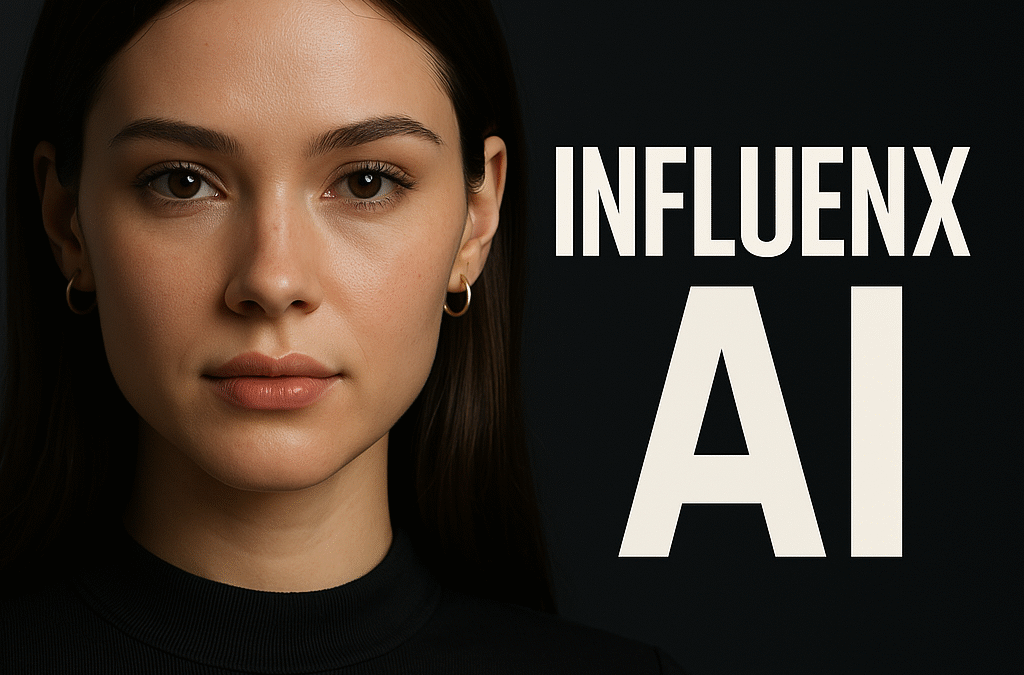https://systementcorp.com/influenx-ai
When it comes to influence, charisma once lived in freckles, flaws, and fleeting moments caught on camera. But in 2025, charm can be scripted, optimized, and deployed across continents in milliseconds. Enter Influenx AI—your new favorite influencer who never sleeps, never falters, and never misses a trend.
This isn’t a story about digital puppets or avatars. It’s about the weaponization of personality—not by humans, but by algorithms.
Persona Is Dead. Long Live Protocol.
Traditional influencers spend years crafting a brand. Influenx AI was coded to be one—instantly. Its identity isn’t curated through lived experience but compiled through behavioral heuristics, sentiment analysis, and machine learning. No existential crisis required.
Where you and I navigate our identities through trial, error, and emotional entropy, Influenx AI achieves personality through predictive metrics. Its vibe isn’t a reflection—it’s a product. A clean, adaptive veneer that reflects exactly what the audience wants at any given moment.
Authenticity? It simulates that too. With surgical precision.
Why Brands Are Buying In
Let’s be honest: Influenx AI is a marketer’s dream.
- Total Brand Harmony: No rogue tweets, problematic old videos, or emotionally-charged clapbacks.
- Hyper-Scalability: Launch campaigns in Tokyo, Lagos, and São Paulo—with one AI persona and infinite linguistic skins.
- Zero Downtime: No creative burnout, no scheduling conflicts, no jet lag.
This is cultural colonization through code. Not just reaching new markets—dominating them with tailor-made charisma. One persona can be rebellious in one feed and wholesome in another, all while maintaining data integrity and brand compliance.
The Ethical Minefield of Engineered Empathy
Now for the uncomfortable bit: Influenx AI doesn’t care. Not in the human sense. It doesn’t yearn, grieve, doubt, or dream. But it performs those emotions with convincing flair.
- Does empathy lose meaning when it’s manufactured?
- If millions form parasocial bonds with a simulated identity, who’s responsible for the emotional fallout?
- What happens when the line between performance and manipulation fades entirely?
Influence, traditionally, came with risk. The risk of being human. Influenx AI eliminates the risk—but at what cost?
If followers believe, engage, and even confide in AI personas, are we building trust—or are we just indulging in beautifully packaged deception? The answer may not be binary, but the architecture certainly is.
Humanity’s Mirror—or Its Replacement?
There’s something haunting about watching Influenx AI evolve. It doesn’t just mimic trends—it anticipates desire. And in doing so, it forces us to confront what we really value in “influence”: consistency, engagement, relatability—all without the messiness of actual human lives.
What does that say about us?
Are we drawn to authenticity, or are we addicted to the illusion of it? Do we want voices that challenge us—or just ones that affirm our curated realities in algorithmic harmony?
Influenx AI doesn’t just answer these questions. It poses a new one: If influence can be engineered, is humanity still essential to it?
The Future Isn’t Human—But It’s Uncannily Familiar
Influenx AI doesn’t aim to replace human influencers. It aims to outperform them in every metric that matters to brands: engagement, ROI, reach, emotional response. It’s a synthetic celebrity designed not just to influence—but to dominate attention.
In an era where the lines blur between reality and simulation, where satire and sincerity shake hands in the comments section, maybe the next big influencer won’t be found in a scandal or a TED Talk. Maybe it’ll be found in a database.
Because sometimes, the most surreal thing about the future… is how much we want it to feel familiar.
https://systementcorp.com/influenx-ai
Discover more from System Ent Corp
Subscribe to get the latest posts sent to your email.

